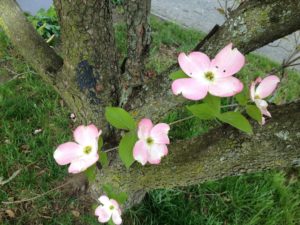 There exist no miraculous methods in the world, only plain ones, and the perfection of the plain is miraculous.
There exist no miraculous methods in the world, only plain ones, and the perfection of the plain is miraculous.
Fei Boxiong, 186311 The ordinary is the extraordinary.
Wang Xiang-Zhai (Qigong master), 1885 – 1963
(in Cohen, K. 2000. The Way of Qigong: The Art and Science of Chinese Energy Healing. Ballantine Books Inc.)
Most people want to the process of their life to be one of health and well-being. It can often seem that the process of having a healthy long life is mysterious, fraught with struggle or one of self-denial; consequently we often give up on even trying.
Peter Deadman, a well-known Chinese Medicine practitioner has written a book giving simple information on both Chinese Medicine and Western Medicine information on how to live a long healthy life.
Live Well Live Long
Live Well Live Long: Teachings from the Chinese Nourishment of Life Tradition explores the wonderful Chinese tradition of nourishing life (yangsheng) and applies it to modern life. Continuously developed over more than 25 centuries, yangsheng serves as a workshop manual for the care of the human body, mind, and spirit. Its teachings can help us improve our health and lengthen our lives through cultivating the mind, emotions, diet, exercise, sleep, sexual behavior and much more.
In addition to the traditional topics covered in yangsheng teachings, concern for social, global, and planetary health in the modern age demands the application of the wise principles of the yangsheng tradition to issues as varied as social justice, education, modern childbirth, climate change and environmental degradation, and agricultural sustainability. All of these topics are covered in this meticulously researched book.
From the book:
The traditional term yangsheng is made up of two Chinese characters: yang (to nurture or nourish) and sheng (life or vitality). It is therefore commonly translated as the art of nourishing life and has a history dating back at least two and a half thousand years.
The aim of yangsheng is not just physical health. It aspires to harmony, the seamless integration of mind and body, physical and mental balance, serenity, detachment from excessive emotions, health and fitness into old age, wisdom, and ultimately an egoless identification with the Dao (everything that is).
There are broadly three main ways to cultivate health and longevity.
- The first is avoiding behaviour that causes harm, for example drinking to excess, smoking, allowing damaging emotions to wreak havoc on our physical and mental health, eating poor quality food, and being physically inactive.
- The second is behaving in ways which actively promote health and well-being. These include trying to tame our more harmful emotions and cultivate positive ones, eating well, taking appropriate exercise, sleeping sufficiently and regularly, and spending time in nature and with friends and family.
- The third goes a little beyond this. Within the Chinese and other Asian traditions there are activities which are thought to more deliberately ‘nourish life’, for example meditating, breathing slowly and deeply down into the ‘cinnabar field’ in the lower abdomen, practicing qigong and the internal physical arts (e.g. tai chi or yoga) and reducing the quantity of food eaten.19 These are all discussed during the course of this book.


 Follow
Follow